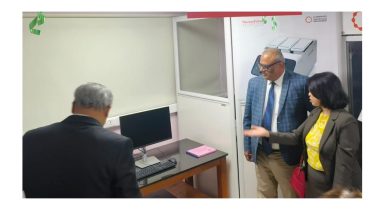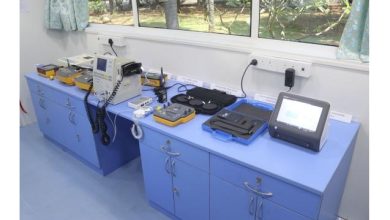Serum Institute of India in agreement with UNICEF

UN children’s agency will have access to up to 1.1 billion doses of vaccines for around 100 countries
The Serum Institute of India (SII) and UNICEF have entered into a long-term supply agreement for the AstraZeneca/Oxford and the Novavax vaccines, with the UN children’s agency saying it will have access to up to 1.1 billion doses of vaccines for around 100 countries.
“Today we are pleased to announce the conclusion of a long-term supply agreement with the Serum Institute of India for COVID-19 vaccines, to access two vaccine products through technology transfer from Astrazeneca and Novavax,” the United Nations International Children Education Fund (UNICEF) Executive Director Henrietta Fore said.
Fore added that UNICEF, along with its procurement partners including Pan American Health Organisation (PAHO), will have access to up to 1.1 billion doses of vaccines for around 100 countries, for approximately $3 a dose for the low- and lower-middle-income countries.
“This is great value for COVAX donors and a strong demonstration of one of the fundamental principles of COVAX – that by pooling our resources we can negotiate in bulk for the best possible deals,” she said.
She added that as these supply agreements are concluded, UNICEF will continue to make public relevant details of the agreements, subject to the consent of the suppliers.
“Likewise, we look forward to working with SII to distribute these vaccines to countries, subject to the approval of the vaccine” by World Health Organisation.
Key workers and other vulnerable people in 145 countries should receive COVID-19 vaccines in the first half of this year, under the joint UN-led COVAX initiative for fair access to coronavirus-beating jabs.
UNICEF, which plays a key role in immunisation campaigns worldwide – welcomed the development, describing COVAX as the largest vaccine procurement and supply operation ever mounted.
“We must get this right,” Fore said.
“Our country offices will support governments as they move forward with this first wave to ensure that they are ready to receive the vaccines that require an ultra-cold chain (storage),” she said.
“This includes ensuring that health workers are fully trained in how to store and handle the vaccines. Many of these doses will go to health workers in urban areas who are at the highest risk of exposure to COVID-19 infections,” Fore said.
Some 1.2 million doses of the Pfizer-BioNTech vaccine which requires ultra-cold chain storage, are to be delivered to 18 countries in the first quarter of the year, out of an agreed total of 40 million.
An additional 336 million doses of the AstraZeneca/Oxford jab are to be lined up for dispatch to nearly all countries that have signed up to the COVAX scheme, from Afghanistan to Zimbabwe – once it has been approved for use by the UN health agency.
The total number of doses will cover, on average, 3.3 per cent of the population of the countries benefiting from the scheme.
This will make it possible for governments to protect their most vulnerable citizens – such as front-line health care workers, the World Health Organisation said, along with Gavi, the Vaccine Alliance and the Coalition for Epidemic Preparedness Innovations.
Fore added that over recent months, UNICEF has also been preparing by stockpiling half a billion syringes, along with safety boxes to dispose of them.
“We have worked closely with airlines and other partners to make sure that all the necessary logistical and planning arrangements are in place. And we are supporting governments and partners in developing national plans to assess their logistics,” she said adding that this includes helping to plan, coordinate, budget, and prepare their health facilities and cold chain ahead of vaccine delivery.
PTI




